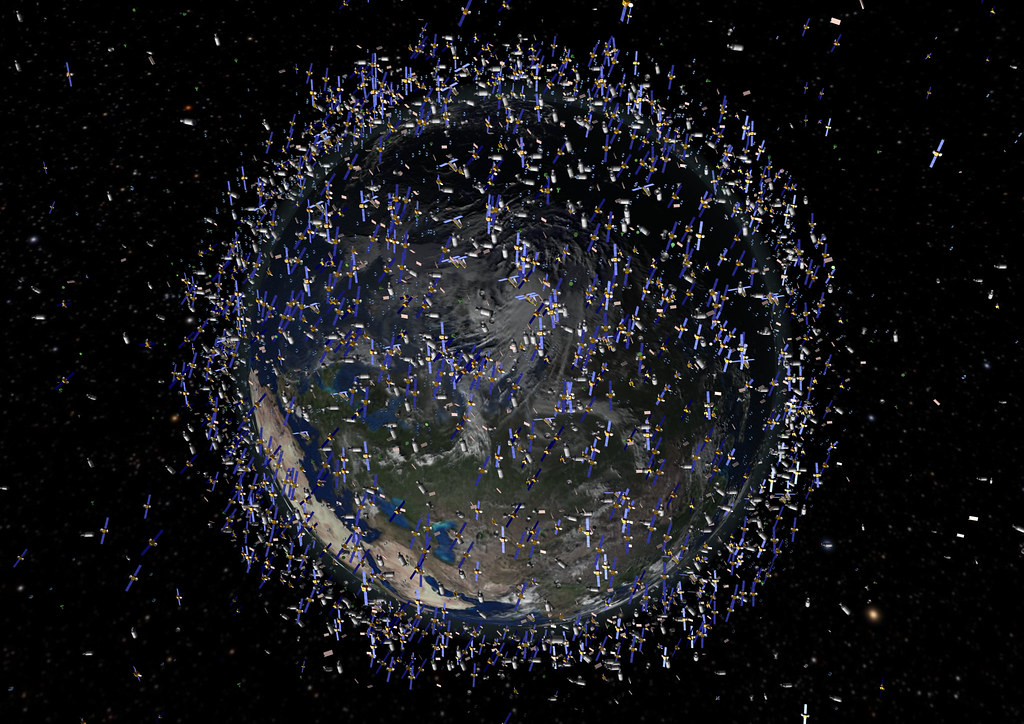The rising proliferation of space debris has shifted from being a niche technical challenge to a central concern for the global space community. The European Space Policy Institute’s (ESPI) recent report, A Party for Everyone? Analyzing International Efforts in Space Debris Mitigation, offers a comprehensive evaluation of existing frameworks and their efficacy. This analysis is particularly relevant for commercial space stakeholders, underscoring the evolving regulatory and operational landscape affecting industry dynamics and sustainability goals.
The Expanding Landscape of Space Debris Mitigation
ESPI’s study highlights two concurrent trends:
- Increased Scope and Stringency: Existing mechanisms are evolving to include enhanced requirements for collision avoidance, debris removal, and orbit determination accuracy. For instance, recent updates to the IADC Space Debris Mitigation Guidelines and ISO standards reflect this progression.
- Emergence of Non-State Initiatives: Industry and NGO-led frameworks, such as the Space Safety Coalition’s Best Practices, are introducing innovative yet decentralized approaches to debris mitigation. While these initiatives complement state-led efforts, they add complexity to the regulatory landscape.
Fragmented Coordination and the “Less is More” Debate
Despite the numerous international and national initiatives tackling space debris, a lack of cohesive alignment among stakeholders hinders effective implementation. The ESPI report identifies a recurring issue: parallel frameworks often operate in isolation, diluting collective impact and complicating global coordination. While new mechanisms address specific gaps, their proliferation sometimes raises the question of diminishing returns. Could consolidating existing frameworks provide better clarity and effectiveness?
The report emphasizes the need for balance—streaming approaches without losing the breadth and innovation brought by diverse stakeholders. The report points out a lack of alignment among stakeholders regarding the proliferation of mitigation instruments. While national policies are becoming more robust, the absence of unified global frameworks limits the translation of consensus into actionable measures.
Key Regulatory Trends
The report identifies significant evolutions in requirements for debris mitigation, including:
- Shortened Deorbit Timelines: A shift from the 25-year rule to a more stringent five-year standard for post-mission disposal in low Earth orbit (LEO).
- Enhanced Positional Accuracy: Increasing emphasis on precise orbit determination, critical for collision avoidance in densely populated orbital regions.
- Higher Disposal Probabilities: Instruments now target success rates exceeding 95% for post-mission disposal, reflecting the growing commitment to enforceable measures.
Opportunities for Europe
The ESPI report positions Europe as a potential leader in global space sustainability. European initiatives such as the Zero Debris Charter and updated ESA requirements demonstrate a clear policy momentum. However, the report advises caution: regulatory advancements must balance sustainability goals with industrial competitiveness to avoid creating entry barriers for new market players.
Broadening the Scope of Mitigation Efforts
Emerging concepts identified by the report include:
- Specialized Regimes: Tailored requirements for high-risk missions, large constellations, and non-traditional orbital zones such as lunar orbits.
- Integration of Broader Agendas: Incorporating issues like the environmental impact of space activities on Earth and protecting dark and quiet skies.
- Debris Removal Readiness: Increasing focus on active debris removal systems, especially through public-private partnerships.
Call for Collaborative Leadership
The report’s comparative analysis suggests that future progress hinges on collaborative models that actively integrate diverse stakeholders across public and private sectors. Drawing parallels with the Intergovernmental Panel on Climate Change (IPCC), ESPI highlights the importance of science-driven frameworks that prioritize inclusivity and consensus-building. Such models could enable unified global efforts by fostering cooperation between established space powers, emerging space nations, and private industry leaders.
The report also suggests that Europe’s established policy infrastructure and its track record of international partnerships position it as a natural leader to spearhead these initiatives. By leveraging its unique standing, Europe can advocate for the harmonization of standards, the implementation of enforceable measures, and the development of shared technological solutions to address the global challenge of space debris.
ESPI’s analysis underscores a critical juncture in the global response to space debris. For commercial space leaders, the report serves as both a warning and a roadmap. Navigating this fragmented yet rapidly maturing landscape will require strategic alignment of innovation, regulation, and sustainability priorities. As the industry marches toward a more congested orbital environment, the need for cohesive, enforceable, and inclusive policies has never been more urgent.
Download the full report here.
Share this article:











